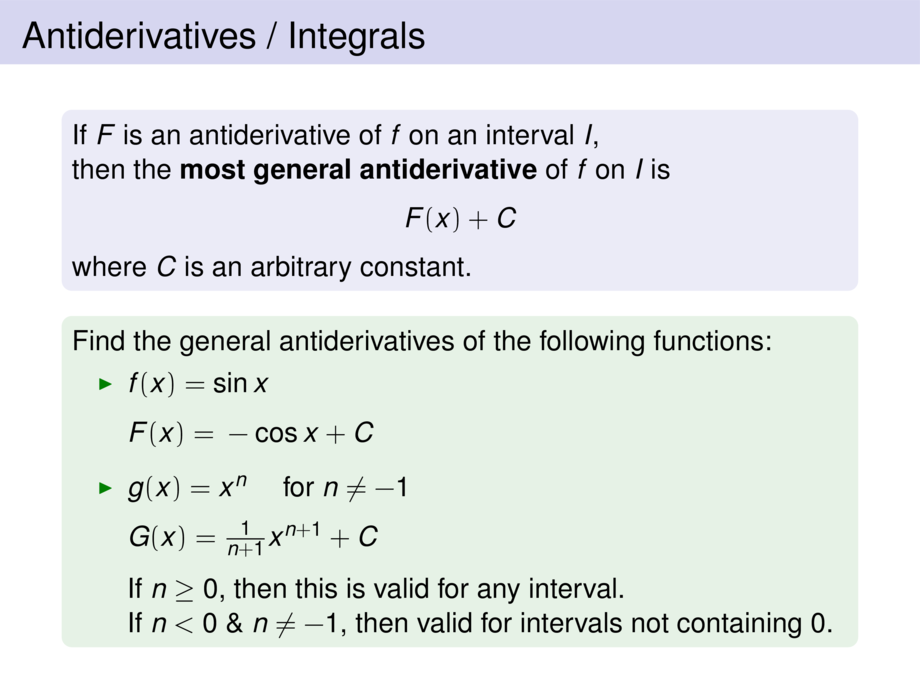
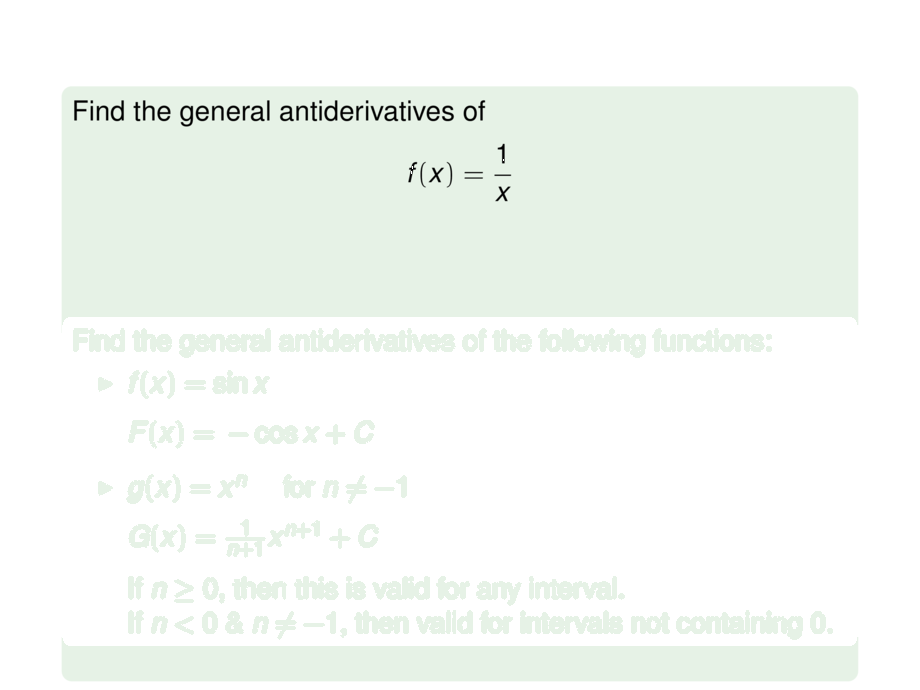
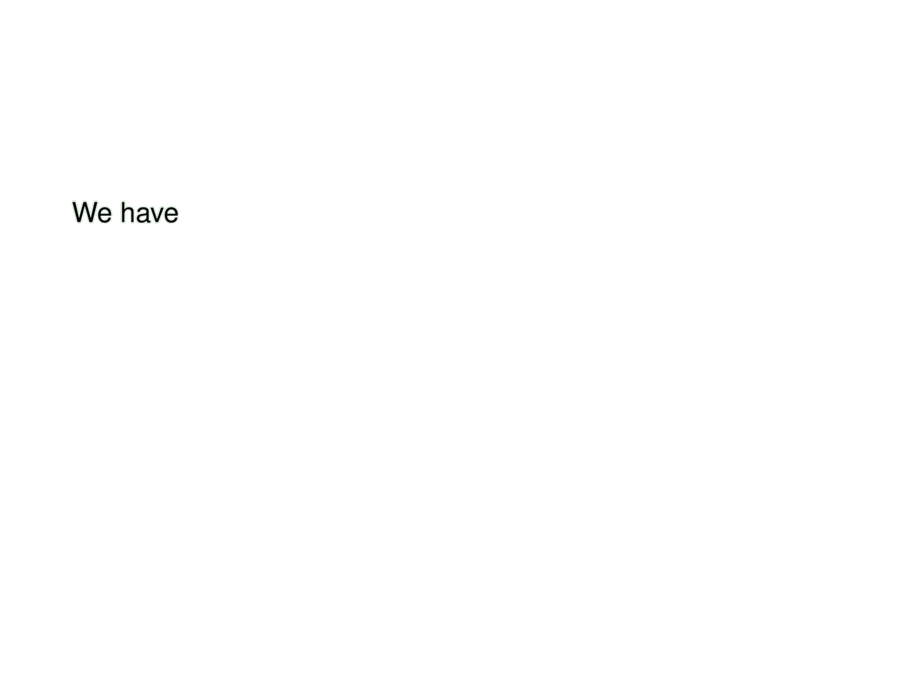
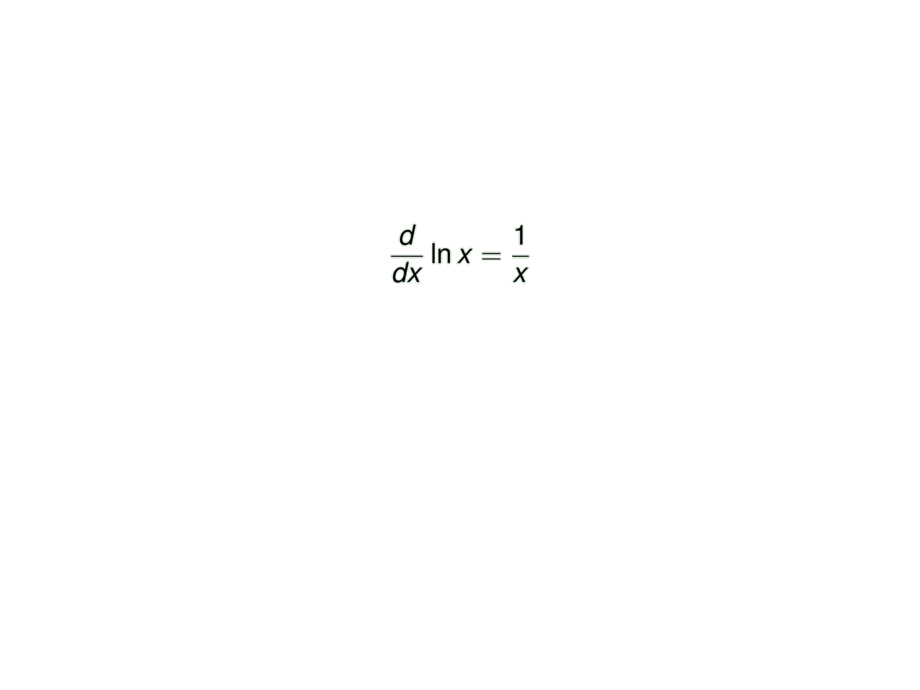
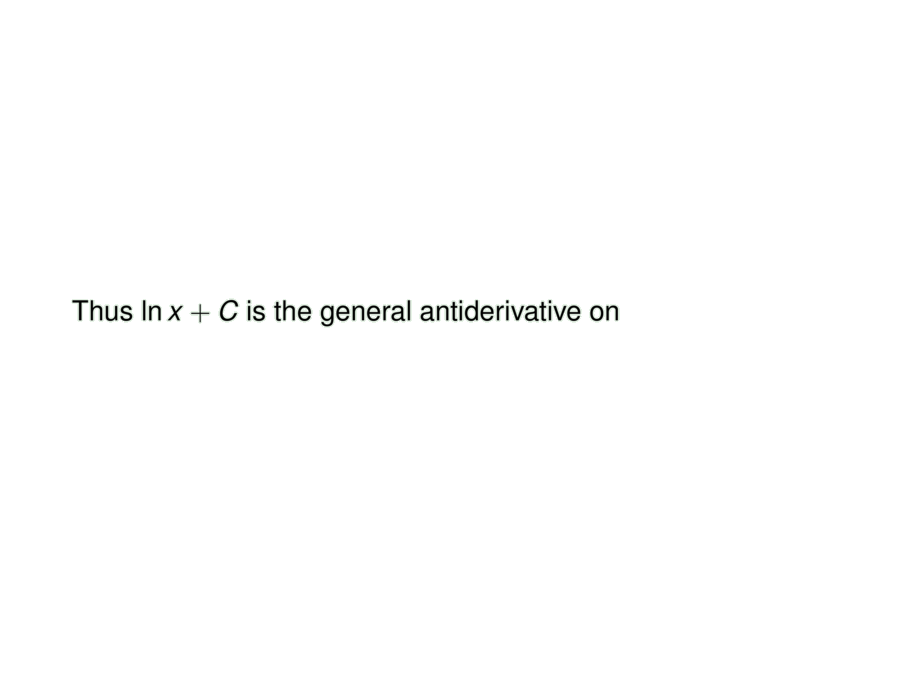
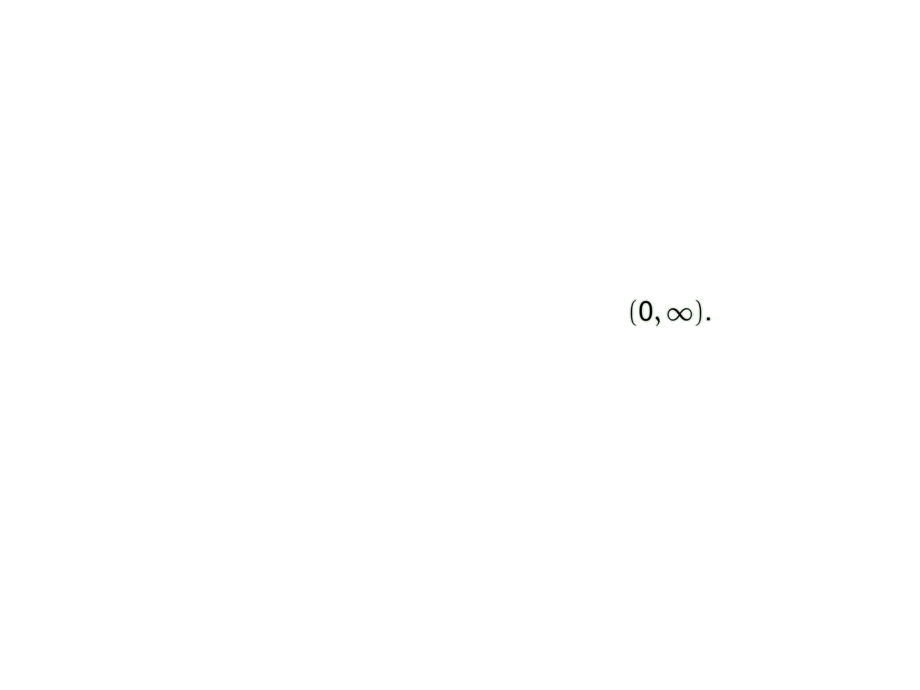
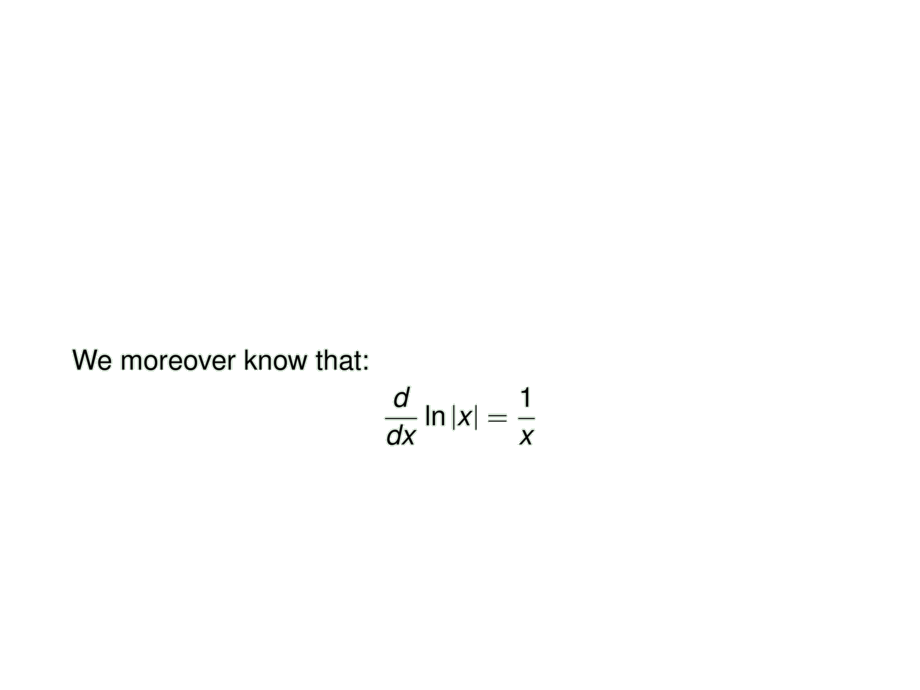
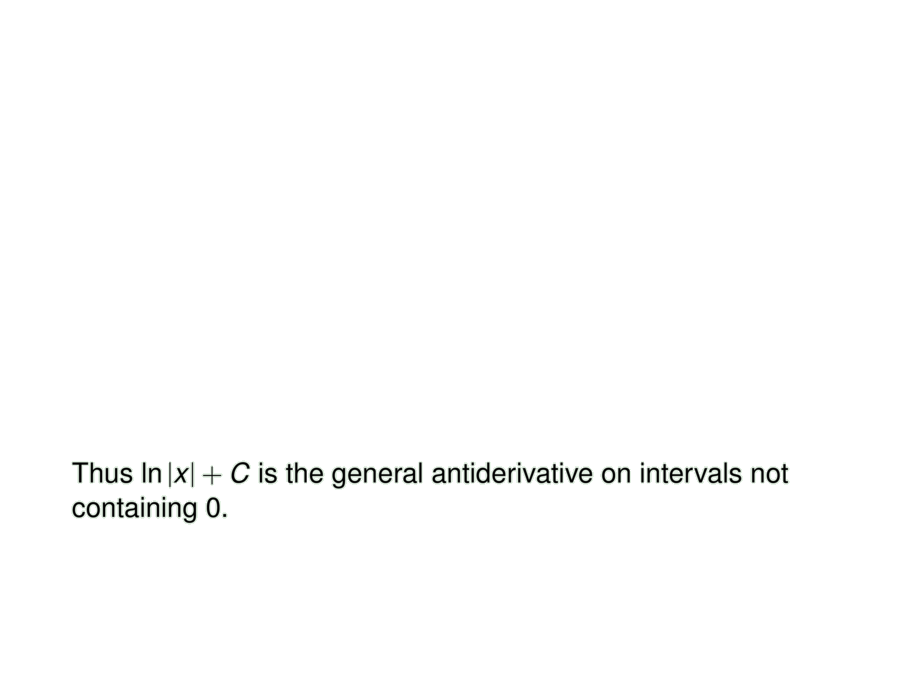
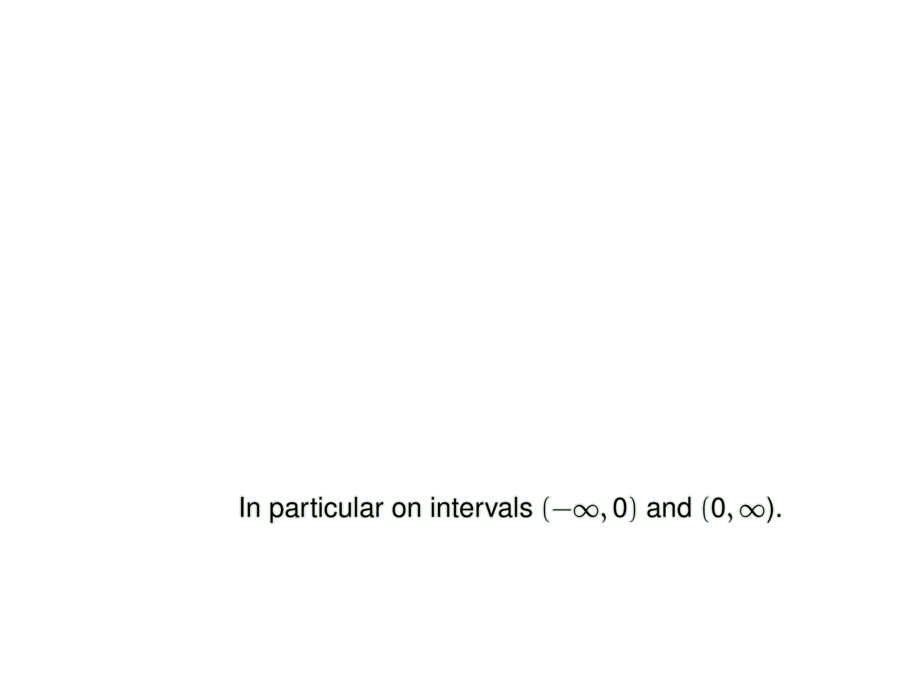



























































































26/116
\begin{frame}
\frametitle{Antiderivatives / Integrals}
\begin{exampleblock}{}
Find the general antiderivatives of
\begin{talign}
f(x) = \frac{1}{x}
\end{talign}\vspace{-3ex}
\pause
We have\pause\vspace{-1ex}
\begin{talign}
\frac{d}{dx} \ln x = \frac{1}{x}
\end{talign}
\pause
Thus $\ln x + C$
is the general antiderivative on \pause $(0,\infty)$.
\pause\medskip
We moreover know that:
\begin{talign}
\frac{d}{dx} \ln |x| = \frac{1}{x}
\end{talign}
\pause
Thus $\ln |x| + C$
is the general antiderivative on intervals not containing $0$.
\pause
In particular on intervals $(-\infty,0)$ and $(0,\infty$).
\pause\medskip
So the general antiderivative of $f$ is:
\begin{talign}
F(x) = \begin{cases}
\ln x + C_1 &\text{for $x > 0$}\\
\ln (-x) + C_2 &\text{for $x < 0$}
\end{cases}
\end{talign}
\end{exampleblock}
\end{frame}

